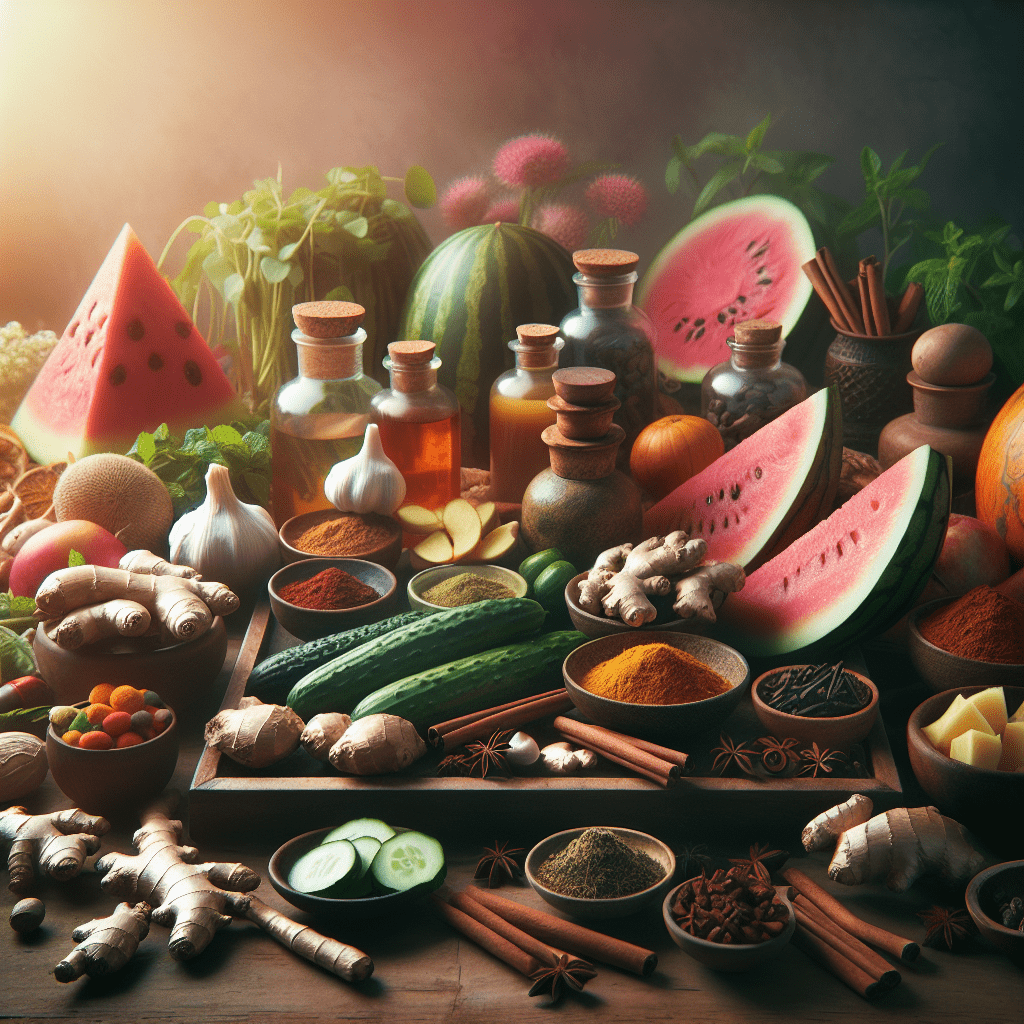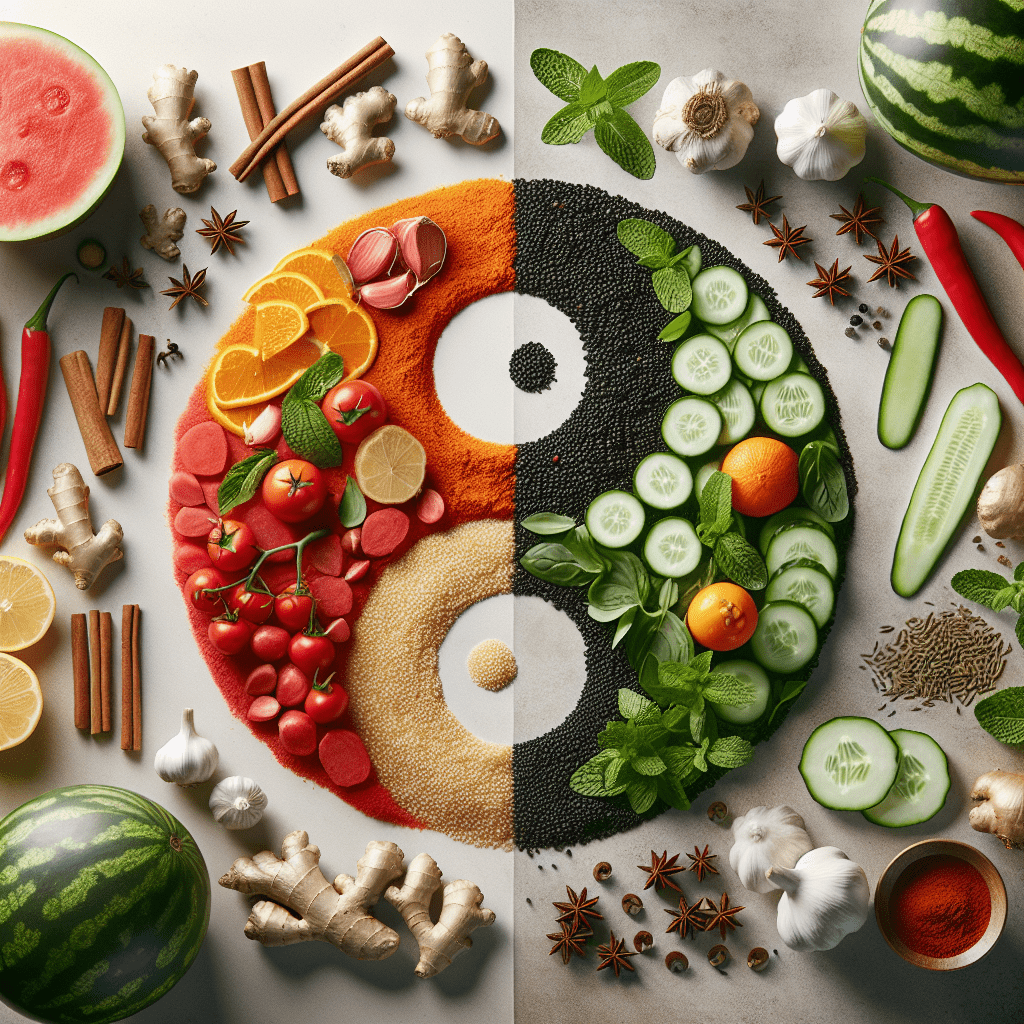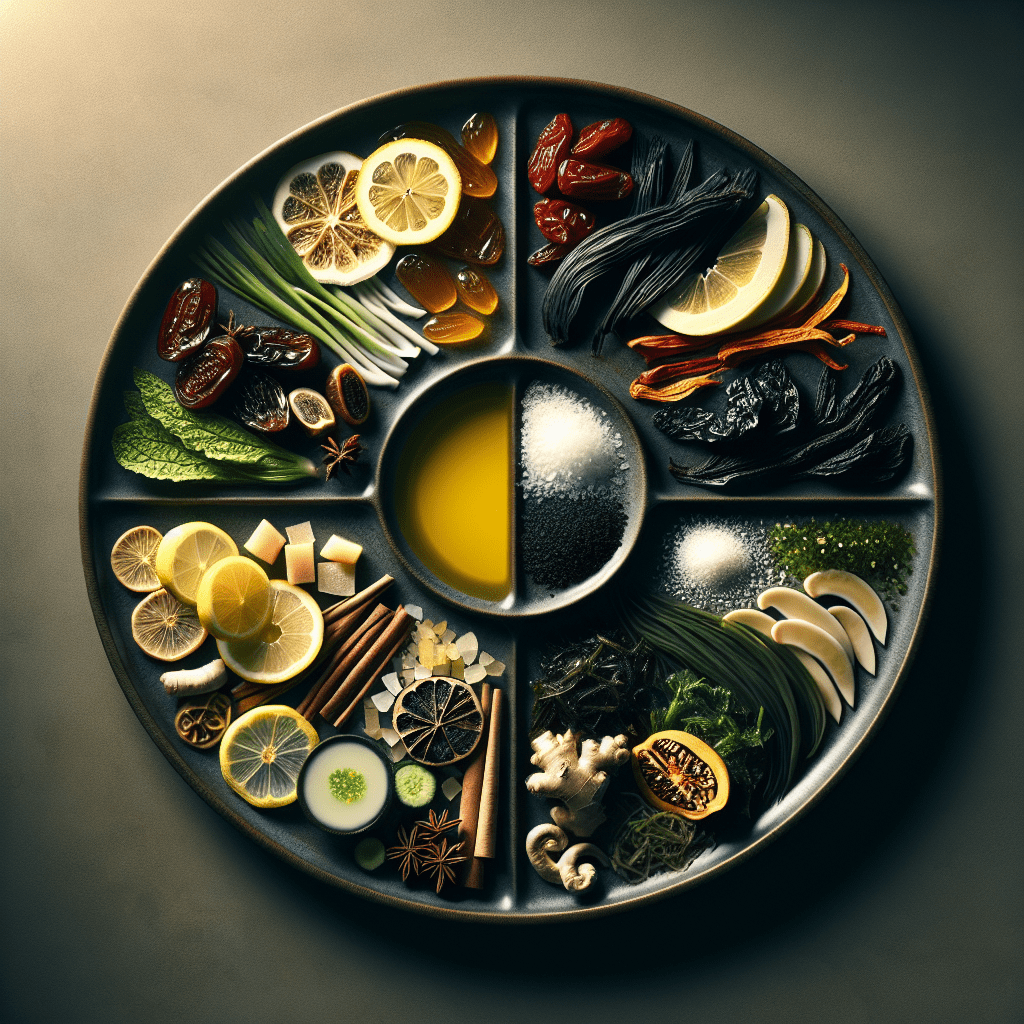Have you ever considered that your kitchen might be as powerful as a pharmacy? Long before modern medicine developed pills for every ailment, ancient traditions across the globe recognized the profound connection between what we eat and how we feel. This concept of “food as medicine” isn’t just an old wives’ tale – it’s a fundamental principle that has guided Eastern healing traditions for thousands of years.
In today’s world of quick fixes and processed convenience, we’ve largely forgotten what our ancestors knew intuitively: that food can heal, prevent disease, and maintain our wellbeing. While Western medicine has made incredible advancements in treating acute conditions, Eastern medical traditions offer complementary wisdom about using everyday foods to support our body’s natural healing processes.
Where East Meets West: The Universal Truth of Food as Medicine
The idea that food is medicine has roots in virtually every traditional healing system worldwide. Hippocrates, the father of Western medicine, famously advised, “Let food be thy medicine and medicine be thy food.” Similarly, ancient Chinese texts dating back over 2,000 years describe in detail how specific foods influence health and balance within the body.
What’s fascinating is how these traditional approaches are now being validated by modern research. Studies increasingly confirm what Eastern medicine has long taught – that certain foods can reduce inflammation, boost immunity, improve gut health, and even help prevent chronic diseases like diabetes and heart conditions.
Eastern Wisdom: Understanding Food’s Energetic Nature
Traditional Chinese Medicine (TCM) and Ayurveda (India’s ancient medical system) share a fundamental principle: they view food not just by its nutritional content but by its energetic qualities and how these interact with our unique body constitution.
In TCM, foods are classified as warming, cooling, or neutral – qualities that have nothing to do with physical temperature. For example, ginger and cinnamon are considered warming and can help people who tend to feel cold or have slow digestion. Cucumber and watermelon, meanwhile, are cooling foods that might benefit someone who runs hot or experiences inflammation.
“TCM doesn’t just look at vitamins and minerals,” explains Dr. Li Chen, a TCM practitioner. “It examines how foods affect the body’s energy, or qi. Someone with a ‘cold’ condition shouldn’t eat too many ‘cold’ foods, while someone with excessive internal heat would benefit from cooling foods.”
Ayurveda takes a similar approach through its dosha system. According to Ayurvedic principles, we each have a unique combination of three doshas (Vata, Pitta, and Kapha), and certain foods can either balance or aggravate these energies. A person with a predominant Pitta dosha (fiery constitution) might be advised to avoid spicy foods and favor cooling fruits and vegetables, while someone with excessive Vata (airy constitution) would benefit from warm, grounding foods like root vegetables and healthy fats.
Therapeutic Nutrition: Targeting Specific Health Conditions
Both Eastern and Western approaches recognize that certain foods have specific therapeutic properties. However, Eastern traditions tend to use whole foods as complex medicine, rather than isolating individual compounds.
For instance, in TCM, black beans strengthen the kidneys, walnuts support brain function (they even look like tiny brains!), and mushrooms like reishi and shiitake enhance immunity. These associations aren’t random – they’re based on thousands of years of observation and documented results.
Ayurveda similarly prescribes specific foods for health conditions. Turmeric with black pepper and ghee (clarified butter) is a traditional remedy for inflammation, while a mix of cumin, coriander, and fennel seeds steeped in hot water aids digestion.
Modern nutritional science confirms many of these traditional recommendations. We now know turmeric contains curcumin, a powerful anti-inflammatory compound, and that black pepper enhances its absorption – exactly as traditional preparations suggested.
A Holistic View: Beyond Individual Nutrients
What truly sets Eastern food traditions apart is their holistic perspective. Rather than reducing foods to their component parts – proteins, fats, vitamins – Eastern traditions consider how foods affect the whole person: body, mind, and spirit.
In both TCM and Ayurveda, food choices are personalized based on an individual’s constitution, current imbalances, age, season, and even emotional state. There’s a recognition that what’s healing for one person might not benefit another.
This personalized approach is something EASTCHI AI at HerbalsZen embraces by analyzing individual constitutional types through Five Element Theory. This ancient framework helps determine which foods will best support your unique body type and current state of health, rather than offering one-size-fits-all recommendations.
The Gut Connection: Ancient Wisdom Meets Modern Science
Perhaps the most exciting convergence of Eastern wisdom and modern research is happening around gut health. Eastern traditions have always emphasized the importance of digestion, considering it the foundation of overall health.
“In Ayurveda, strong digestion – or ‘agni’ – is considered essential for preventing disease,” notes Ayurvedic practitioner Maya Tiwari. “When digestion is weak, even the healthiest foods can create toxins in the body.”
Today’s research on the gut microbiome is validating this focus. We now know that trillions of bacteria in our digestive tract influence everything from our immune system to our mental health. And what determines which bacteria thrive? Largely, the foods we eat.
Fermented foods like kimchi, sauerkraut, and kefir – staples in many traditional diets – are now recognized as powerful probiotics that support beneficial gut bacteria. Similarly, fiber-rich foods that Eastern traditions have long recommended – vegetables, fruits, legumes, and whole grains – feed these beneficial bacteria and promote microbiome diversity.
Nature’s Pharmacy: Foods With Exceptional Healing Properties
Some foods stand out for their remarkable medicinal qualities, acknowledged by both Eastern traditions and modern research:
Garlic: Used medicinally across cultures for thousands of years, garlic has antimicrobial, antifungal, and immune-boosting properties. TCM considers it warming and beneficial for the lungs and stomach.
Ginger: A staple in both TCM and Ayurveda, ginger improves digestion, reduces nausea, fights inflammation, and warms the body. It’s particularly valued in Eastern medicine for its ability to expel cold from the body.
Turmeric: This golden spice contains curcumin, which research shows has powerful anti-inflammatory effects. In Ayurveda, turmeric is considered purifying for the blood and beneficial for the skin.
Mushrooms: Varieties like reishi, shiitake, and maitake have been used in Eastern medicine for centuries to enhance immunity and vitality. Modern research confirms their immune-modulating properties.
Fermented foods: Traditional foods like miso, tempeh, kimchi, and kombucha don’t just provide probiotics; they also enhance the bioavailability of nutrients in the original ingredients.
Incorporating these foods into your daily diet is a simple way to begin practicing food as medicine. A morning tea with ginger, turmeric and black pepper, for example, offers anti-inflammatory benefits while warming the digestive system – exactly as Eastern traditions would recommend.
Practical Applications: Embracing Food as Medicine
How can you begin incorporating Eastern food wisdom into your own life? Here are some practical approaches:
Focus on whole foods: Both Eastern and Western nutritional approaches agree that minimally processed foods closest to their natural state offer the greatest health benefits.
Eat according to the seasons: Eastern traditions emphasize harmony with nature. In winter, favor warming foods like soups, stews, and root vegetables. In summer, enjoy cooling foods like salads, fruits, and lightly cooked vegetables.
Listen to your body: Notice how different foods make you feel. Do you feel energized or sluggish after eating certain meals? Does your digestion improve with cooked versus raw foods? These observations are valuable data points.
Spice it up: Herbs and spices aren’t just flavor enhancers – they’re medicine. Incorporate turmeric, ginger, cinnamon, cardamom, cumin, and other spices liberally in your cooking.
Balance flavors: TCM recognizes five flavors (sweet, sour, bitter, pungent, and salty), while Ayurveda identifies six (adding astringent). A balanced meal contains a variety of these flavors, which correspond to different organs and bodily functions.
Beyond Food: The Community and Mindfulness Connection
Eastern traditions recognize that how we eat is as important as what we eat. Mindful eating practices – taking time to appreciate food, eating without distractions, chewing thoroughly – enhance digestion and our relationship with food.
Similarly, sharing meals in community has been central to traditional food cultures worldwide. The joy and connection we experience when eating with others actually influences how our bodies process food.
“In Eastern traditions, there’s no separation between food, medicine, and spiritual practice,” explains Dr. John Chen, a pharmacist trained in both Western and Eastern approaches. “The act of preparing and sharing food is itself healing.”
The Transformative Potential of Food as Medicine
Embracing food as medicine doesn’t mean rejecting modern medical advances. Rather, it’s about complementing conventional approaches with ancient wisdom that addresses the roots of health and disease.
By understanding food’s energetic qualities, as taught in TCM and Ayurveda, we gain a deeper appreciation for how what we eat interacts with our unique constitution. By recognizing food’s therapeutic potential, we empower ourselves to make choices that support our body’s natural healing processes.
This integration of ancient wisdom and modern understanding is at the heart of HerbalsZen’s philosophy. EASTCHI AI brings together 2,000-year-old Eastern medical knowledge with cutting-edge technology to provide personalized nutritional guidance based on your individual needs.
As Hippocrates recognized over two millennia ago, food can indeed be our medicine. By tapping into the ancient secrets of Eastern food traditions, we access a profound source of healing that’s available to us three times a day, every day.
Whether you’re dealing with a specific health concern or simply seeking vibrant wellbeing, the food as medicine approach offers a delicious path forward – one that honors both the science of nutrition and the art of nourishing body, mind, and spirit. In your kitchen cabinet and refrigerator lies a powerful pharmacy; learning to use it wisely might just transform your health journey.




